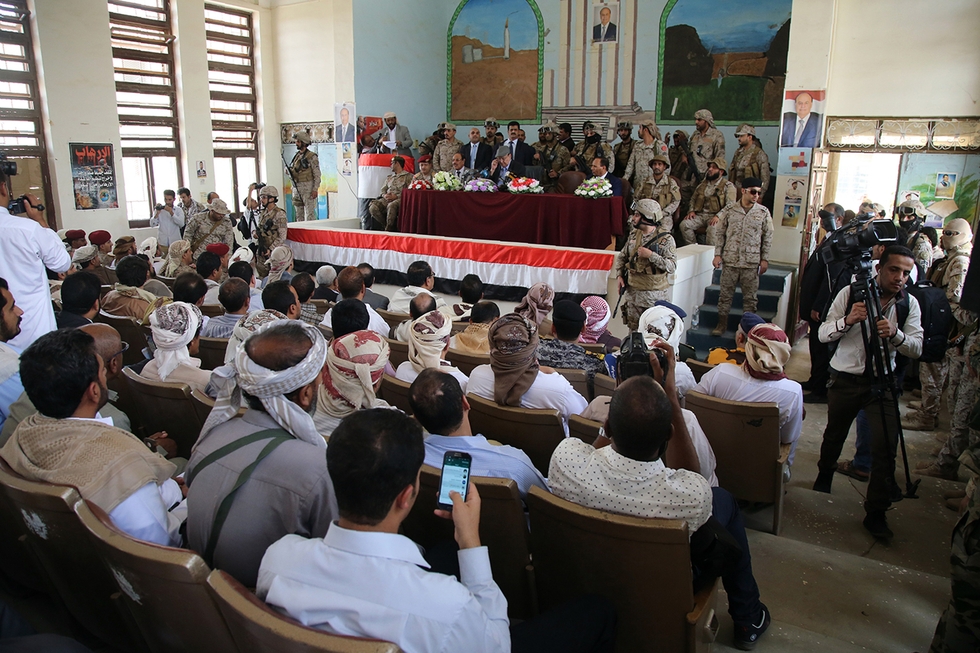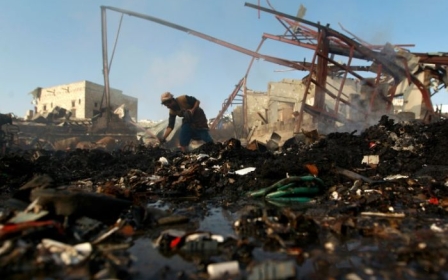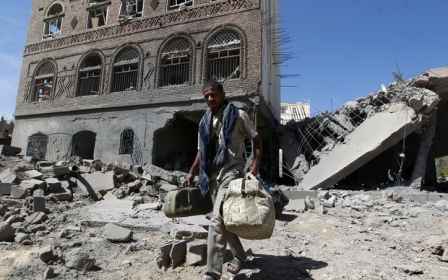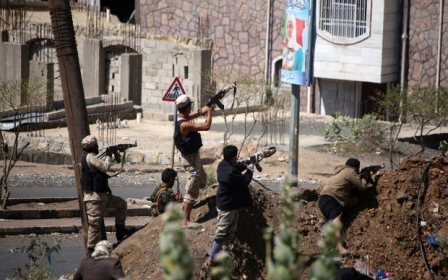Yemen's government threatens to boycott latest UN peace talks

Yemen's government threatened on Thursday to boycott UN-brokered peace talks, on the eve of their expected resumption in Kuwait, unless Houthi rebels commit to the terms of a United Nations resolution.
The UN said that it had not been informed of any boycott from any side, while affirming that the talks were scheduled to resume on Friday after a two-week break.
More than two months of negotiations between President Abd Rabbuh Hadi's Saudi-backed government and the Iran-backed Houthis and their allies have failed to make any headway.
"Our delegation will not travel to Kuwait until the United Nations fulfils its commitments" to pressure the rebels to "implement (Security Council) Resolution 2216," a presidency official told AFP from Riyadh, where much of the government has been based since Houthis seized the Yemeni capital.
Security arrangements under Resolution 2216 require the rebels and their allies to withdraw from areas they have occupied since 2014, including capital Sanaa, and to hand over heavy weapons.
For the talks to resume, UN envoy Ismail Ould Cheikh Ahmed must obtain "written guarantees from the other party to commit to the references of the talks that have been agreed on," including the resolution, said the source, who requested anonymity.
Hadi on Sunday warned that his government would boycott the talks if the UN envoy insists on a roadmap stipulating a unity government that includes the Houthis.
But a spokesman for the UN envoy told the AFP news agency that Ahmed "will return to Kuwait tomorrow (Friday) and the talks will resume as planned".
"No delegation has yet announced that it will not participate," the source added.
A government official said, however, that "a decision on the return to the negotiating table will be taken after the Arab summit," scheduled to take place in Nouakchott later this month.
The UN envoy was still in Sanaa, where he met with rebel leaders after holding consultations with Hadi in Riyadh on Tuesday.
Hadi's government wants to re-establish its authority across the entire country, much of which is Houthi-controlled, and restart a political transition interrupted when the rebels and their allies seized Sanaa in 2014.
The rebels have conditioned their withdrawal on both sides agreeing on a new president to manage the transition.
More than 6,800 people have been killed in Yemen since a Saudi-led coalition intervened in support of Hadi's government in March last year.
Human Rights Watch earlier this week revealed evidence that the Saudi-led coalition had indiscriminately targeted civilian economic targets.
The report also revealed evidence of the use of US and UK-manufactured munitions by the Saudi-led coalition in Yemen.
Some 2.8 million people have been displaced and more than 80 percent of the population are in urgent need of humanitarian aid, according to UN figures.
New MEE newsletter: Jerusalem Dispatch
Sign up to get the latest insights and analysis on Israel-Palestine, alongside Turkey Unpacked and other MEE newsletters
Middle East Eye delivers independent and unrivalled coverage and analysis of the Middle East, North Africa and beyond. To learn more about republishing this content and the associated fees, please fill out this form. More about MEE can be found here.




